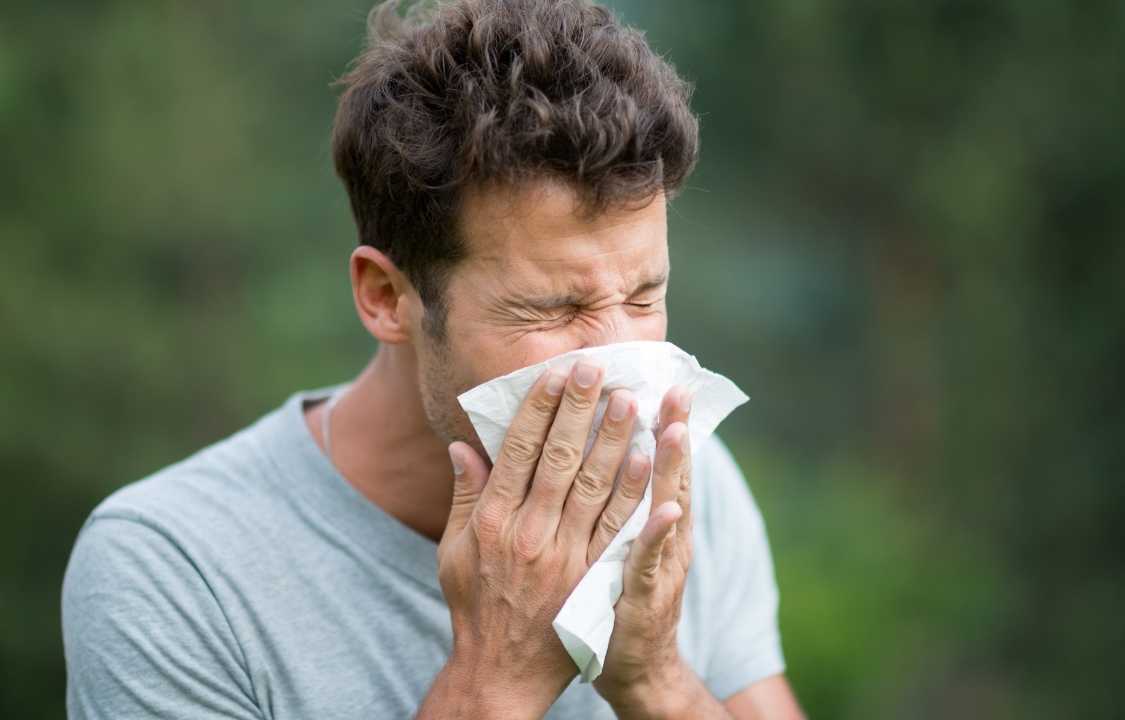Allergens, irritants, pathogens, and dry air are common triggers for sneezing.
Sneezing, that sudden and explosive blast from the mouth and nose, often starts with a subtle tickle. It’s a reflexive response, and it serves as the body’s way of purging itself of potential irritants, allergens, viruses, and other foreign substances, according to insights shared by Matthew Purkey, MD, an ear, nose, and throat specialist. Sneezing, in essence, acts as a protective mechanism, effectively guarding our upper airway, especially the nose, against intruders.
The Physiology of Sneezing
A sneeze initiates when an irritant infiltrates the nasal passages, as elucidated by Dr. Purkey. This intruder becomes ensnared in the nose hair, which subsequently triggers nerve endings. These nerves convey a message to the medulla, a vital component of the brain stem responsible for regulating involuntary functions like breathing, blood pressure, and heart rate.
Once the nerve signals reach the medulla, the brain orchestrates a physical response. This involves closing the eyes, taking a deep breath, relaxing throat muscles, and then forcibly expelling air, along with saliva and mucus, from the nose and mouth. Astonishingly, all of these intricate actions transpire within a matter of seconds.
Although all sneezes share this common origin and conclusion, each person possesses a distinctive sneeze. In fact, one’s sneeze is nearly as unique as their voice. Variations in lung capacity and the individual structures of the nose, throat, and mouth contribute to this diversity, as noted by Jacob Hascalovici, MD, PhD, a clinical assistant professor specializing in neurology at the Albert Einstein College of Medicine.
Exploring the Causes of Sneezing
Sneezing can be triggered by a multitude of factors, some of which may seem inexplicable. The sensation of a tickle in the nose typically arises from the entry of foreign particles into the sinuses.
Common triggers for sneezing include:
1. Environmental Irritants: Smoke, perfumes, and air pollution.
2. Allergies: Substances like pet dander, pollen, mold, or dust mites.
3. Infections: The common cold, COVID-19, and influenza.
4. Dry Air: Dry air can irritate the nasal mucous membranes.
5. Peppers: These contain piperine, a substance that can irritate the nasal passages.
Curiously, some unusual triggers for sneezing also exist. For instance, some individuals experience postcoital sneezing, a phenomenon that is not entirely understood. It is hypothesized that the autonomic nervous system, responsible for involuntary functions like sneezing and sexual arousal, plays a role in this peculiar occurrence.
Similarly, a rare condition known as “snatiation,” a fusion of “sneeze” and “satiation,” causes individuals to sneeze after a hearty meal, as explained by Heather Moday, MD, an allergist and immunologist.
Additionally, certain people may sneeze when suddenly exposed to bright light or when looking directly at the sun, a phenomenon termed “photic sneeze reflex.” There is evidence to suggest that this reflex may have a genetic component.
Why We Close Our Eyes and Why Sneezing Feels Good
Most individuals involuntarily close their eyes when sneezing to shield them from the expelled irritants, as clarified by Dr. Purkey. While it is indeed possible to sneeze with open eyes, experts recommend against attempting it.
Furthermore, sneezing can offer a pleasurable sensation. Releasing a sneeze provides instant relief from the tickling sensation in the nose, akin to scratching an itch. Dr. Hascalovici suggests that sneezing, to some extent, mimics an orgasmic experience. Both involve a buildup of tension followed by a rapid, intense release. The muscle contractions associated with sneezing may even trigger a minor release of endorphins, the body’s feel-good chemicals, as noted by Dr. Moday. These are the same neurotransmitters that flood the brain during an orgasm.
Is It Harmful to Suppress a Sneeze?
Although it may be tempting to stifle a sneeze, particularly in situations like a work presentation, experts unanimously advise against it. Sneezing generates considerable pressure, and suppressing it can have adverse consequences. Dr. Purkey warns that the pressure from a stifled sneeze can rupture eardrums or cause blood vessels in the eyes and brain to burst.
Furthermore, the allergens, irritants, or pathogens that would naturally be expelled through sneezing may find their way to the ear, increasing the risk of ear infections, Dr. Purkey added.
Managing and Preventing Sneezing
For those struggling with persistent sneezing, pinpointing the underlying cause is crucial. While there is no foolproof method to halt sneezing on the spot, identifying triggers can lead to effective management.
For instance:
1. Seasonal Allergies: Over-the-counter antihistamines can provide relief. Depending on your allergies, you may need to take antihistamines before or during exposure to allergens.
2. Irritants: Eliminating potential irritants, such as avoiding perfume, cigarette smoke, or specific foods, can help alleviate sneezing.
3. Dry Air: Lubricating nasal passages with saline rinses or using a portable humidifier can combat sneezing induced by dry air.
If you’re unable to discern the cause of your sneezing or if it interferes significantly with your daily life, seeking guidance from a healthcare provider or an allergy specialist is advisable.
Furthermore, practicing good sneezing etiquette, such as covering your nose and mouth with a tissue or directing your sneeze toward the crook of your elbow, is essential to prevent the spread of germs to those around you, emphasized Dr. Hascalovici.
In Conclusion
Sneezing is a remarkable bodily reflex that serves as a protective mechanism to expel potential irritants and foreign substances from the upper airway. Various factors, including allergies, irritants, infections, and dry air, can trigger sneezing. Effective management depends on identifying the root cause. If sneezing persists and home remedies prove ineffective, consulting a healthcare provider is advisable. Practicing proper sneezing etiquette is essential to prevent the spread of germs to others.

